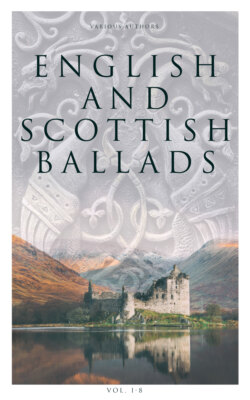Читать книгу English and Scottish Ballads (Vol. 1-8) - Various Authors - Страница 116
На сайте Литреса книга снята с продажи.
THE CLERK'S TWA SONS O' OWSENFORD.
ОглавлениеTable of Contents
"This singularly wild and beautiful old ballad," says Chambers, (Scottish Ballads, p. 345,) "is chiefly taken from the recitation of the editor's grandmother, who learned it, when a girl, nearly seventy years ago, from a Miss Anne Gray, resident at Neidpath Castle, Peeblesshire; some additional stanzas, and a few various readings, being adopted from a less perfect, and far less poetical copy, published in Mr. Buchan's [Ancient Ballads and Songs of the North of Scotland, i. 281,] and from a fragment in the Border Minstrelsy, entitled The Wife of Usher's Well, [vol. i. p. 214, of this collection,] but which is evidently the same narrative."[A]
"The editor has been induced to divide this ballad into two parts, on account of the great superiority of what follows over what goes before, and because the latter portion is in a great measure independent of the other, so far as sense is concerned. The first part is composed of the Peeblesshire version, mingled with that of the northern editor: the second is formed of the Peeblesshire version, mingled with the fragment called The Wife of Usher's Well."
The natural desire of men to hear more of characters in whom they have become strongly interested, has frequently stimulated the attempt to continue successful fictions, and such supplements are proverbially unfortunate. A ballad-singer would have powerful inducements to gratify this passion of his audience, and he could most economically effect the object by stringing two ballads together. When a tale ended tragically, the sequel must of necessity be a ghost-story, and we have already had, in Clerk Saunders, an instance of this combination. Mr. Chambers has furnished the best possible reasons for believing that the same process has taken place in the case of the present ballad, and that the two parts, (which occur separately,) having originally had no connection, were arbitrarily united, to suit the purposes of some unscrupulous rhapsodist.
[A] There is to a certain extent a resemblance between this ballad and the German ballad Das Schloss in Oesterreich, found in most of the German collections, and in Swedish and Danish.
